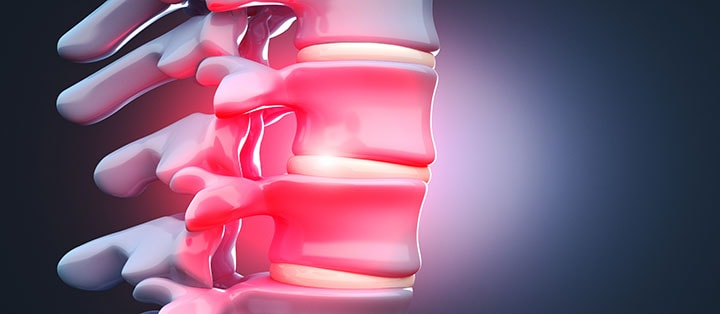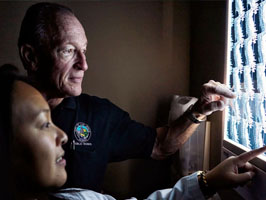Spondylosis is a general term for degenerative arthritic changes of the spine, or more simply arthritis. Most degenerative changes of the spine are part of the normal aging process, much like developing grey hair. Everyone is expected to have some evidence of spondylosis as they get older. Many times, patients who have spondylosis on imaging studies do not have any symptoms. In fact, more than 90% of adults over 65 show signs of arthritis on neck x-rays. These degenerative changes most commonly occur at the vertebral body and openings for nerve roots. If arthritis occurs at the facet joints, this is referred to as facet syndrome.

Spinal Arthritis Causes
While we generally think of arthritis as age related, these changes can occur at any age. Heavy labor jobs, high impact sports, previous neck or back injuries may all contribute to accelerated arthritis. There appears to be a strong genetic component to arthritis and we know that smoking quickly accelerates the degenerative process in the spine.
Spinal Arthritis Symptoms
Many people with arthritic changes will describe stiffness or localized aching at the involved area. People may have difficulty turning or bending their neck. Specific movements, including physical activity or prolonged positioning may exacerbate pain. Headaches may originate in the neck. Crepitus, or a grinding noise may be heard with movement. Symptoms tend to improve with rest, and are worst in the morning and at the end of the day.
In severe cases, arthritic changes may place pressure on a nerve root, pinching that nerve and causing pain, sensation changes or weakness in that root. Pinching of the nerve is called radiculopathy. If nerves are involved, people may sense radiculopathy as altered changes in their arms or legs depending on the location of the spondylosis. Degenerative changes can cause spinal stenosis and apply pressure on the spinal cord. When the spinal cord senses pressure on it, it may cause myelopathy: a wide variety of vague symptoms characterized by global weakness, gait dysfunction, loss of balance, sensory changes in the hands and feet, and loss of bowel and/or bladder control.


